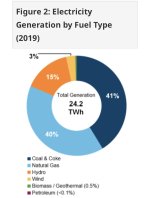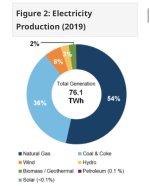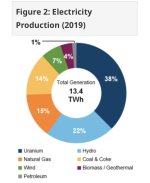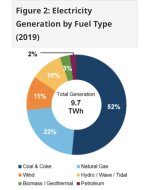What do Canadians think of carbon taxes? We know what the federal government thinks: Environment Minister Steven Guilbeault is a huge fan, as he has been a vocal proponent of his government’s imposition of a minimum price of $65 per tonne of carbon, which has raised the price at the pump by 14 cents per litre in much of the country.
The escalating carbon tax, which will eventually reach $170 per tonne, combined with the new clean fuel regulations, which the PBO estimates will cost households between $384 and $1,157 a year by 2030, will raise gas prices even further.
As for Finance Minister Chrystia Freeland, she is carbon-tax-positive, as well. While in Prince Edward Island in July, she was asked about the impact higher fuel prices will have on residents and gave this tone-deaf answer: “I am right now an MP for downtown Toronto, and a fact that still shocks my dad is that I don’t actually own a car.… I’m like 300 metres from the nearest subway; I walk, I take the subway.”
While she apparently forgot that she has access to a ministerial car and chauffeur, she did concede that, “I understand that there are communities in P.E.I. and across Atlantic Canada where you need to drive.”
Indeed. And what do people in those communities, and the rest of country, think about carbon taxes? As it turns out, they’re not nearly as bullish on the subject.

 apple.news
A recent survey by Nanos Research found that two-thirds of Canadians think now is “poor timing” or “very poor timing” for a carbon tax increase. Western and Atlantic Canadians take the dimmest view, at 79 and 73 per cent respectively. Even in eco-conscious Quebec, 53 per cent of respondents think the timing is wrong.
apple.news
A recent survey by Nanos Research found that two-thirds of Canadians think now is “poor timing” or “very poor timing” for a carbon tax increase. Western and Atlantic Canadians take the dimmest view, at 79 and 73 per cent respectively. Even in eco-conscious Quebec, 53 per cent of respondents think the timing is wrong.
Sixty-five per cent of Ontarians and 63 per cent of British Columbians said they believe a carbon tax is not an effective way to encourage people to use less fuel.
And it appears that they are right on the money. According to the government’s own national inventory report on greenhouse gases, while Canada has reduced emissions in many sectors, transportation is not one of them. Although transportation emissions dropped at the start of the pandemic, they have since been rising rapidly, increasing by around five per cent between 2020 and 2021, due to a 27 per cent increase in the number of vehicles on the road, particularly trucks, since 2005.
Businesses rely on road transportation to move product. Individuals rely on it to move themselves and their groceries, children, hockey equipment, furniture — basically anything too bulky to carry. People with mobility issues — a growing cohort of seniors — aren’t hopping on the subway. And people in rural areas don’t have a subway to hop on.
In their zeal to convert everyone to cyclists and transit riders, the Liberals are ignoring the everyday realities of Canadians. They are asking Canadians to save money by foregoing time, without realizing that people have precious little of each. In other cases, they are asking people to do the impossible: not use their vehicles, when their vehicles are their only way of getting from point A to B. The rest at the above link…
The escalating carbon tax, which will eventually reach $170 per tonne, combined with the new clean fuel regulations, which the PBO estimates will cost households between $384 and $1,157 a year by 2030, will raise gas prices even further.
As for Finance Minister Chrystia Freeland, she is carbon-tax-positive, as well. While in Prince Edward Island in July, she was asked about the impact higher fuel prices will have on residents and gave this tone-deaf answer: “I am right now an MP for downtown Toronto, and a fact that still shocks my dad is that I don’t actually own a car.… I’m like 300 metres from the nearest subway; I walk, I take the subway.”
While she apparently forgot that she has access to a ministerial car and chauffeur, she did concede that, “I understand that there are communities in P.E.I. and across Atlantic Canada where you need to drive.”
Indeed. And what do people in those communities, and the rest of country, think about carbon taxes? As it turns out, they’re not nearly as bullish on the subject.
Tasha Kheiriddin: The carbon tax is coming back to bite the Liberals, hard — National Post
Only 32 per cent of Canadians think the carbon tax is effective at reducing fuel consumption — and they're right
Sixty-five per cent of Ontarians and 63 per cent of British Columbians said they believe a carbon tax is not an effective way to encourage people to use less fuel.
And it appears that they are right on the money. According to the government’s own national inventory report on greenhouse gases, while Canada has reduced emissions in many sectors, transportation is not one of them. Although transportation emissions dropped at the start of the pandemic, they have since been rising rapidly, increasing by around five per cent between 2020 and 2021, due to a 27 per cent increase in the number of vehicles on the road, particularly trucks, since 2005.
Businesses rely on road transportation to move product. Individuals rely on it to move themselves and their groceries, children, hockey equipment, furniture — basically anything too bulky to carry. People with mobility issues — a growing cohort of seniors — aren’t hopping on the subway. And people in rural areas don’t have a subway to hop on.
In their zeal to convert everyone to cyclists and transit riders, the Liberals are ignoring the everyday realities of Canadians. They are asking Canadians to save money by foregoing time, without realizing that people have precious little of each. In other cases, they are asking people to do the impossible: not use their vehicles, when their vehicles are their only way of getting from point A to B. The rest at the above link…



